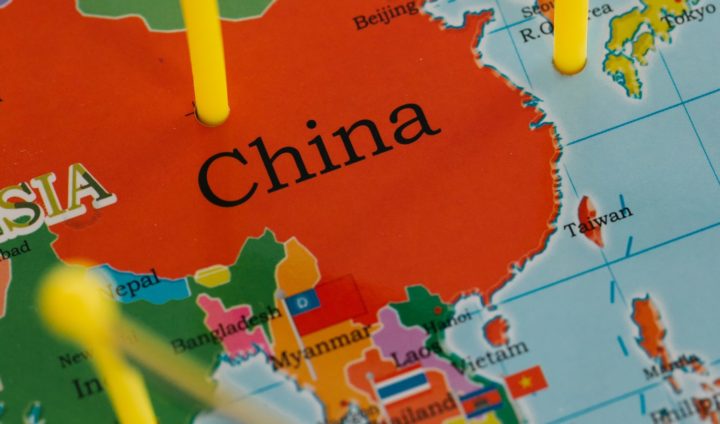You would be forgiven for not knowing about China’s secret foreign “police stations”; the news that such offices exist has only come to light in the last two months. In the Netherlands, local media had reported that China was allegedly operating two such places in Rotterdam and Amsterdam since 2018. And in late October of this year, the Dutch Foreign Ministry said it was investigating these claims. Fast forward to Wednesday of this week and the government has demanded that these sites be immediately shut down. [1] [2] [3]
China has denied the claims that it is running “posts” to monitor foreign dissidents. It is understood that the so-called police stations claim to offer consular assistance to Chinese citizens in the Netherlands. However, according to reports, neither of the two offices have been registered with the Dutch government, and campaigners argue that the offices are actually used to bring in political opponents and critics of the Chinese government, sometimes in order to be sent back to China, and other times to be interrogated or threatened in order to stop such activism. [1] [2] [3]
The Dutch Minister of Foreign Affairs, Wopke Hoekstra, said on Monday,
“[We] have asked the Chinese ambassador for full clarification on the so-called police service stations carrying out tasks in the Netherlands on behalf of the Chinese government.
“Because no permission has been requested from the Netherlands for this, the Ministry has informed the ambassador that the stations must close immediately. In addition, the Netherlands will conduct research into the stations, in order to find out their precise activities.” [4] [5]
When the news first broke, the Chinese government responded by stating that such reports were “completely false”. However, Maxime Hovenkamp, spokesperson for the Dutch Ministry of Foreign Affairs, told AFP that the government took the claims extremely seriously.
“The Dutch ministers of justice and foreign affairs have taken note of the reports… and take the matter very seriously… The foreign ministry is currently investigating the activities of the so-called police stations. When we have more clarity on this, appropriate measures will be taken.” [2]
China has sought to spin the unearthed unregulated offices as “public security stations” – whatever this means. During a routine briefing in Beijing, the Chinese Foreign Ministry spokesman Zhao Lijian claimed,
“The organisations you mentioned are not police stations or police service centres… Their activities are to assist local Chinese citizens who need to apply for expired driver’s license renewal online, and activities related to physical examination services by providing the venue. We hope that the parties concerned do not make unreasonable claims.” [3]
Tip of the iceberg
In September, the Spanish human rights group, Safeguard Defenders, released a report that said there are at least 36 so-called “police stations” dotted throughout Europe and more in four other continents. Spain and Portugal have a high concentration of such stations and it is concerning that such sites have apparently been free to do as they wish. [6]
There are believed to be “posts” in the UK’s cities of Glasgow and London, in addition to one that has already been closed but was located in Ireland’s capital, Dublin. Moreover, German economic powerhouse Frankfurt is believed to be home to a station, as is Paris with three such sites, and Vienna, Austria housing a further site, in addition to four in Italy.
Following a recent investigation, Alexander Dukalskis, an associate professor in the School of Politics and International Relations at University College Dublin, told VICE World News,
“The justification is to bring back people who are corrupt or participating in fraud. But there are existing mechanisms for this already. So it’s not clear why this kind of shadow structure has to be set up…
“The system can be abused to target dissidents, activists and ethnic minorities like Uyghurs or Tibetans abroad, which we have ample evidence that the Chinese government harasses, threatens, monitors and generally intimidates through a lot of different channels.” [7]
Britain is evidently not immune to such illegal Chinese outposts. Indeed, there are believed to be three such sites in the country, and it was reported by Inside Croydon earlier this week that a British MP was so shocked to discover a Chinese “police station” on Croydon High Street, that she raised an urgent question in the Commons to find out how and why such a site should be present in the town. [8]
The disturbing reality is that China is operating dozens of so-called police stations in various locations throughout Europe and other continents, usually within normal-looking businesses or premises. In London’s Hendon site, for example, the station is apparently sharing office space with a Hunter Realty estate agents. And in Glasgow, the station is reportedly housed in a Chinese restaurant. It would also appear that such businesses are willingly co-operating with Chinese operatives, raising further questions as to whether they are being fed hush money or some other form of incentive. [9]
Cease and desist
If China is allowed to continue to operate such entities, along with the likes of its Confucius Institutes, this deadly combination is clearly making it extremely easy for the Chinese Communist Party (CCP) to track and monitor dissidents – such as those who demand Hong Kong independence and democracy, as well as Tibetan and Taiwanese critics of Beijing’s rule and threatening language – in addition to controlling exactly what foreigners learn of Chinese culture.
This double-pronged sword or two-headed dragon is a serious threat to not only Uyghurs, but also the aforementioned groups and also the local populations where such “police stations” or Confucius Institutes are located. It is high time that this dragon is eliminated.







